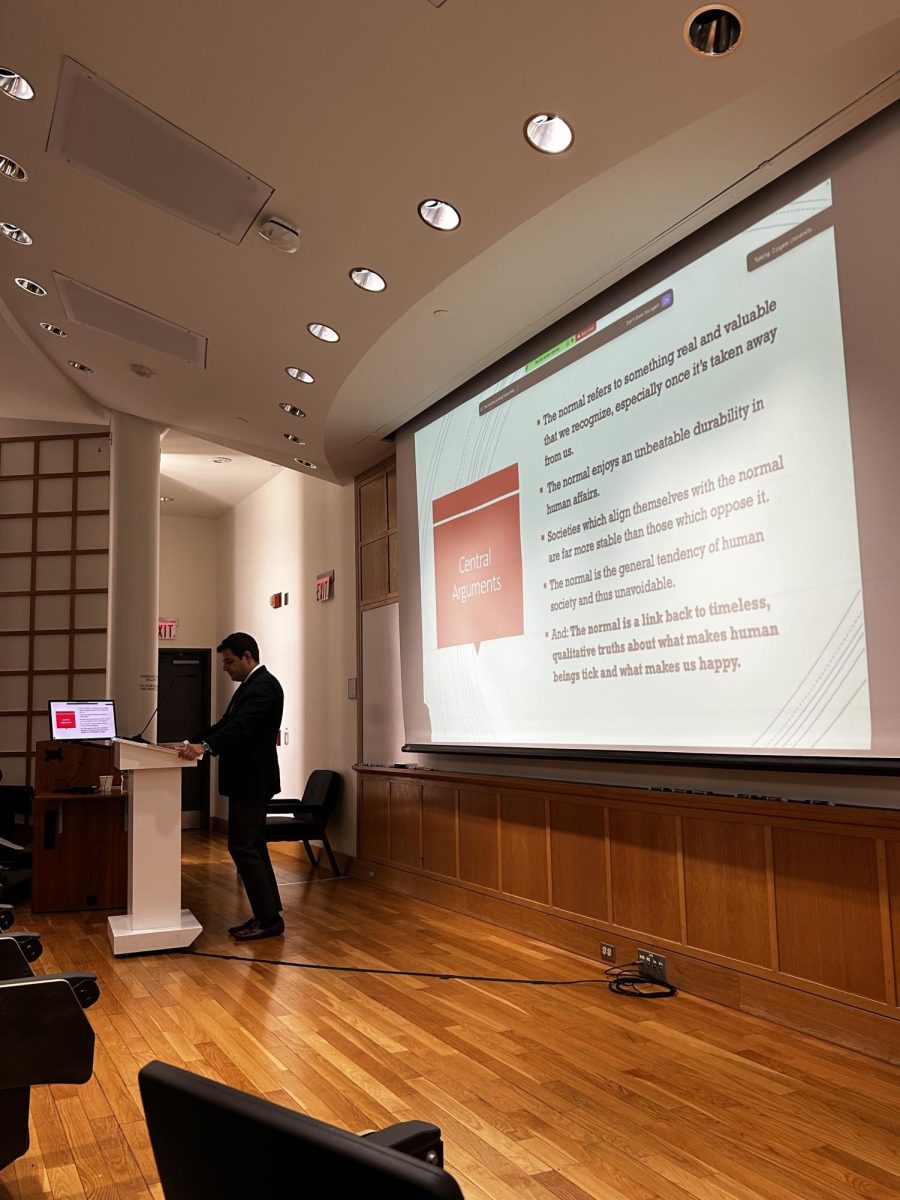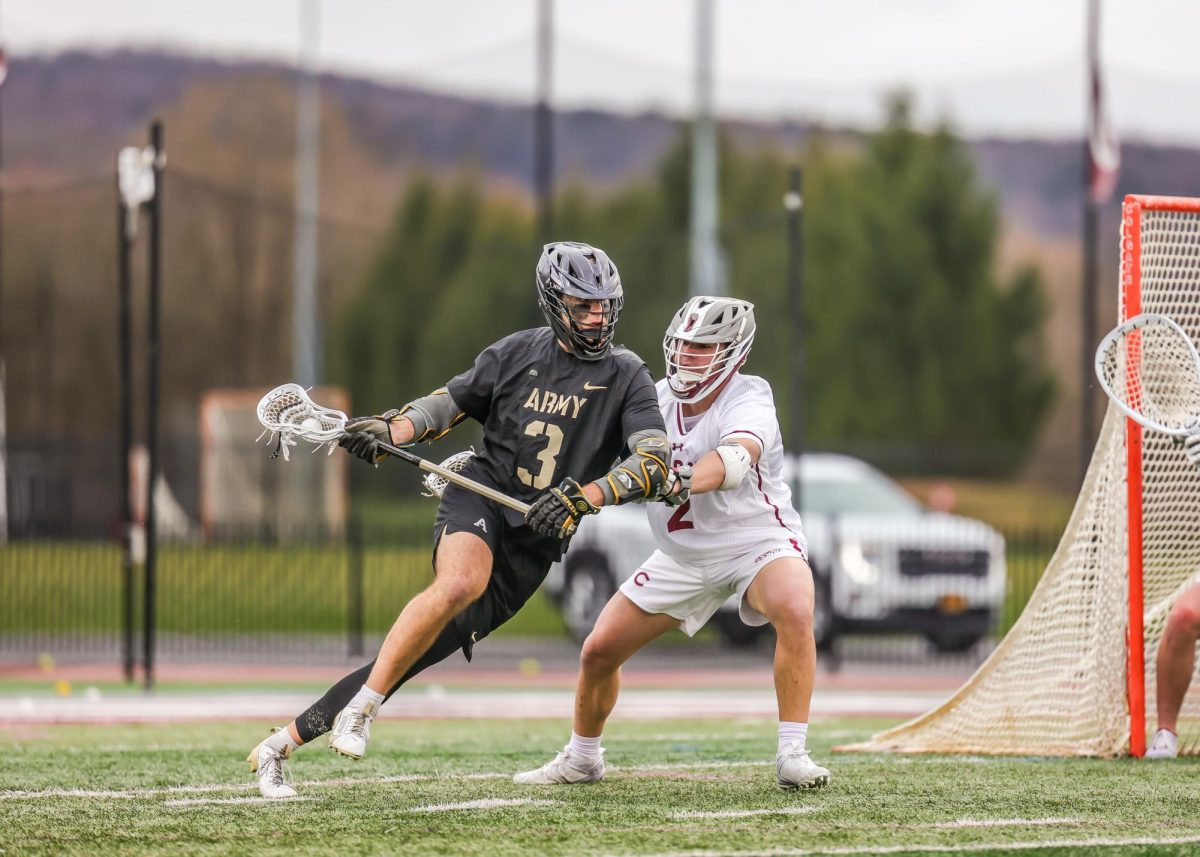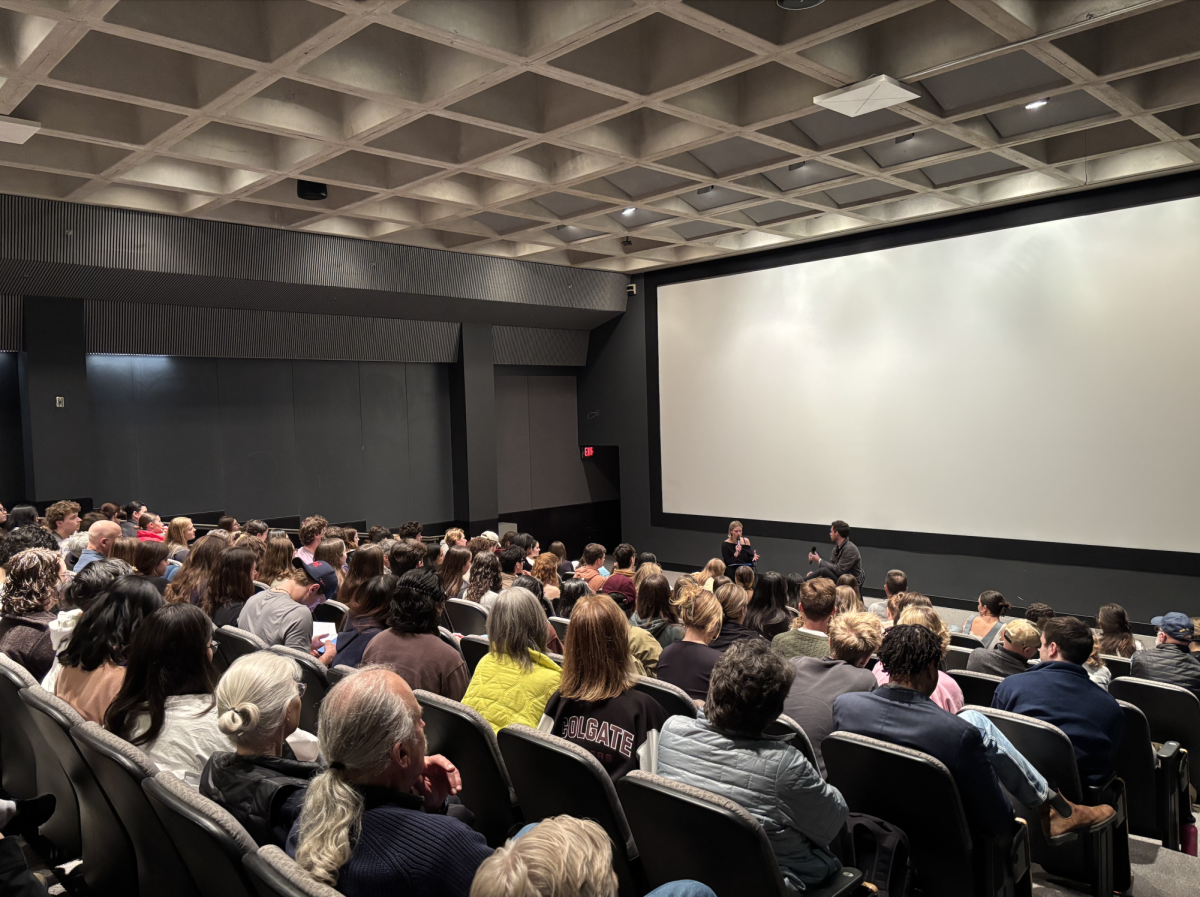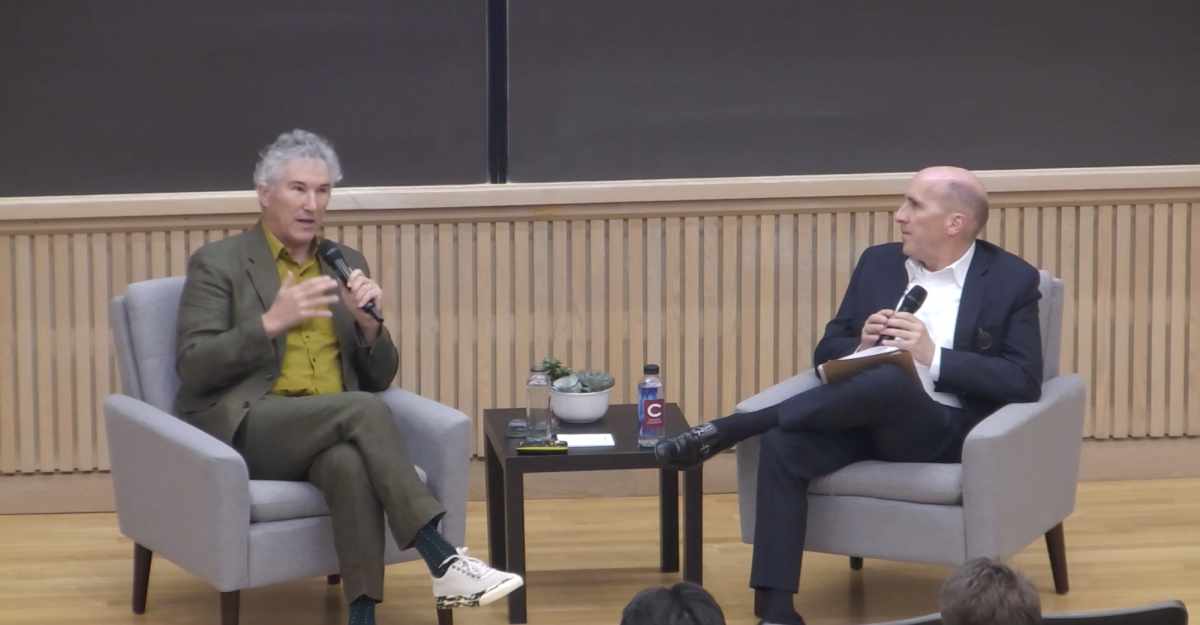The Colgate University Jewish studies and Middle Eastern and Islamic studies programs hosted guest lecturer Derek Penslar on Wednesday, Feb. 14. The event was part of an ongoing series of discussions surrounding Israel and Palestine hosted by the two departments. Penslar is a Jewish history professor at Harvard University and directs the Harvard’s Center for Jewish Studies.
Penslar began by offering definitions of Zionism, anti-Zionism and antisemitism. He outlined Zionism as the desire for a modern Jewish homeland within the biblical land of Israel. The term was originally coined in the late 19th century and can take numerous forms, including cultural, political and religious. Penslar also expressed how someone expressing themselves as a Zionist can be a more complex topic than it seems.
“If someone says, ‘I’m a Zionist,’ all it means is they have some kind of connection to this historic movement,” Penslar said. “The word Zionism is just the beginning of a conversation, not the end of one.”
Anti-Zionism, on the other hand, is described by Penslar as a rejection of the idea that Israel has a right to be a Jewish state and of Zionism as an ideology. It can also embody one’s sympathy with Palestinians’ demands for freedom, justice and equality. He also noted how some Jews are anti-Zionists, oftentimes because they believe Zionism violates the Jewish religious values of seeking justice, equity and fairness. Penslar further explained how anti-Zionism can take many forms.
“There are anti-Zionists that say there should be a single state between the Mediterranean [Sea] and Jordan, in which Jews and Arabs all live together on equal terms. Then there are anti-Zionists who would like to see the state of Israel completely dismembered,” Penslar said.
Penslar followed his discussions on Zionism and anti-Zionism by dissecting what it means to be antisemitic.
“Antisemitism is an irrational animosity towards Jews or a fear of Jews,” Penslar said. “It’s often related to notions that Jews are unusually powerful and wealthy.”
Given those three definitions, Penslar then explored whether anti-Zionism is antisemitic. Because he believes both of these issues are grounded in a strong emotional state, he explained how emotions play into the discussion.
“You might be angry with [someone] for very good reasons. And then you explain the problem and the anger dies down. Anger goes up and down. Hatred stays. Hatred is a very powerful emotion,” Penslar said. “I like to think of hatred as petrified anger. Hatred is when the anger just stays and hardens. I really want to make that difference between anger and hatred clear because when it comes to Israel and Zionism and all of these things connected to Israel and Palestine, people in universities and throughout the world react with emotional waves.”
Penslar discussed how these powerful emotions play a role in the current campus climate.
“There’s this whole debate now on whether a movement that is expressive of solidarity with Palestinians and is extremely critical of Israel is hateful,” Penslar said. “I don’t have an answer, but I have a question: Can anger against Israel be distinguished from hatred of Israel?”
Assistant Professor of Jewish Studies Daniella Doron helped organize the event and discussed her satisfaction with the lecture.
“I was especially pleased that [Penslar] offered a nuanced and sophisticated analysis of contemporary events without offering an answer,” Doron said. “I hope that we stimulated everyone’s thinking in a more nuanced and complicated way, when it’s so easy to have a gut-jerk reaction to events right now.”
First-year Leo Li also attended the talk for both personal and academic reasons. He discussed how the content closely relates to his CORE Communities class, Jewish Diaspora, and how he has recently become interested in the debate around Zionism and antisemitism.
“What stuck out to me is the complexity and the seriousness of this topic. The debate is not only happening [in] Gaza but also around us,” Li said. It is important for us to listen to the other side and to distinguish the anger from hate.”
Penslar’s lecture expanded on contentious topics, providing all those in attendance with a foundation for complex conversations.










